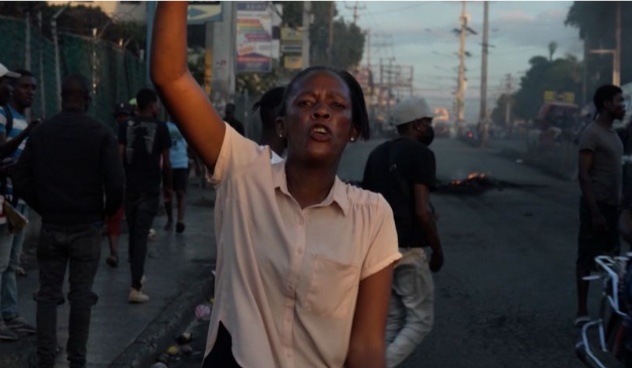Gangs rule Haiti’s capital. Some say they’re ready to overthrow the government too
Port-au-Prince, Haiti
From above, Haiti’s capital city Port-au-Prince still looks serene, its white-washed homes climbing steep green hills that encircle a glittering bay. But to step onto its cracked streets requires a careful calculation of risk and reward.
Ruthless gangs have a stranglehold on the city, preying on the population, carving neighborhoods into warring criminal fiefdoms, and cutting Haiti’s international port off from the rest of the country.
In this city, the most-shared online videos are often torture footage, recorded and posted by gangs to spread horror and hasten ransom payments for thousands of kidnapping victims. Last month, within hours of landing at the city’s Toussaint L’Ouverture airport, a CNN team began to receive forwarded messages from contacts sharing the latest cruel footage – a bound woman twisting away from flames as her kidnappers jeered.
It was a glimpse into the viral daily torment of life in Haiti, where frequent civilian protests emphasize that the population has reached a breaking point. Gangs control 80% of the capital, according to UN estimates, and are fighting to seize the rest.
Since last week, Port-au-Prince has been gripped by a wave of highly coordinated gang attacks, with armed groups burning down police stations and freeing prisoners in what one gang leader described as a direct challenge to Haiti’s unpopular Prime Minister Ariel Henry. On Sunday, Haiti’s government declared a state of emergency after thousands of inmates apparently escaped from its largest prison .
“We have chosen to take our destiny in our own hands. The battle we are waging will not only topple Ariel’s government. It is a battle that will change the whole system,” said Jimmy “Barbeque” Cherizier, a former police officer who styles himself as Robin Hood figure in his territory, in a statement reported by local media.
Henry’s whereabouts are currently unclear, after a visit to Kenya last week.
80% of Port-au-Prince controlled by gangs
On TikTok and WhatsApp, accounts flaunting guns and flashy cars tout affiliation with groups like the 5 Segond gang, 400 Mawozo (notorious in the US for the 2021 kidnapping of over a dozen foreign missionaries), and Kraze Barye, whose leader has a nearly $2 million bounty on his head from the FBI.
Haiti’s gangs were once seen as thuggish instruments for powerful politicians and business elites. But today, they seem to have slipped their leashes; the gangs overrunning Port-au-Prince have become independent “violent entrepreneurs,” according to a recent analysis by the Global Initiative Against Transnational Organized Crime.
In an impoverished country with little to exploit, the gangs are treating human beings like commodities, snatching at least 2,490 people off the street last year to trade in a fast-growing kidnapping business, per UN figures.
Victims whose families cannot pay for their release are often killed, adding to the thousands of others who have lost their lives to indiscriminate gunfire, waves of arson, and other abuses. Haiti’s national homicide rate doubled last year, reaching 41 murders for every 100,000 people, the UN says – one of the highest murder rates in the world
Haiti’s National Police, which boasts an aggressive new anti-gang unit, has seen some success in apprehending some criminal figures and holding back gang expansion in a key areas of the city, including next to the US embassy. But with nearly 100 growing gangs in the metropolitan area, the force just does not have the firepower or training to restore calm to the country, sources say.
People drive past a burning blockade as demonstrators hold a protest calling for the resignation of Haitian Prime Minister Ariel Henry outside the Canadian Embassy, in Port-au-Prince, Haiti February 25 2024.







Comments
Post a Comment